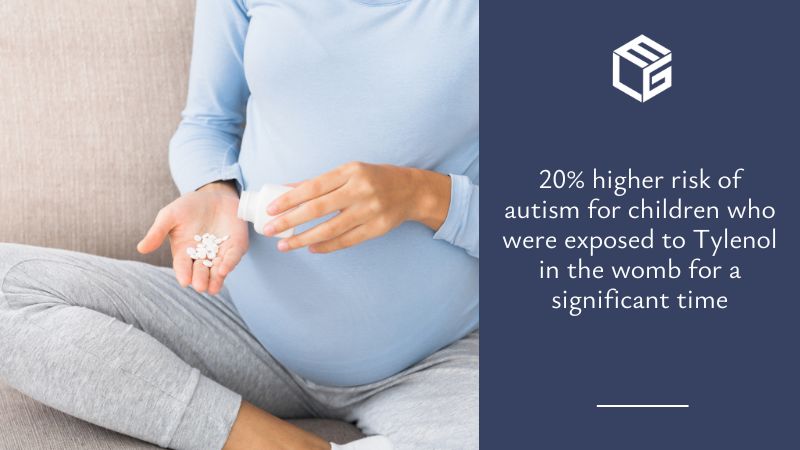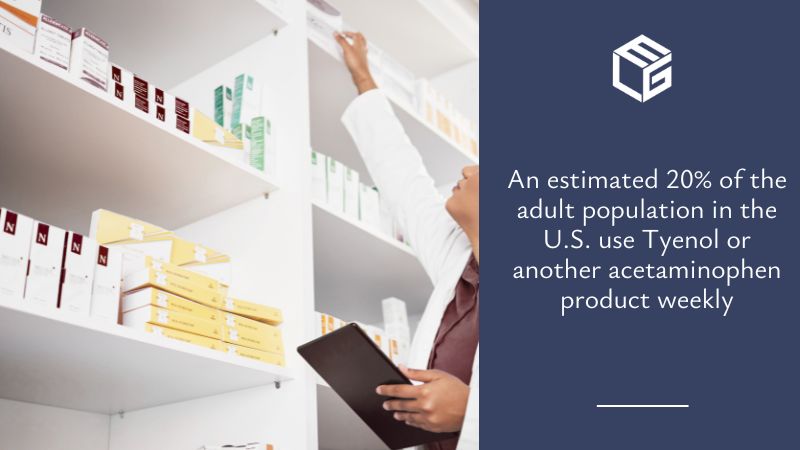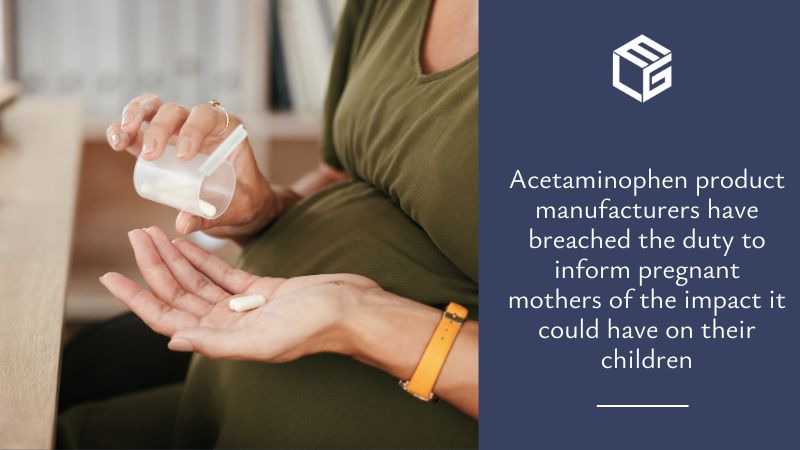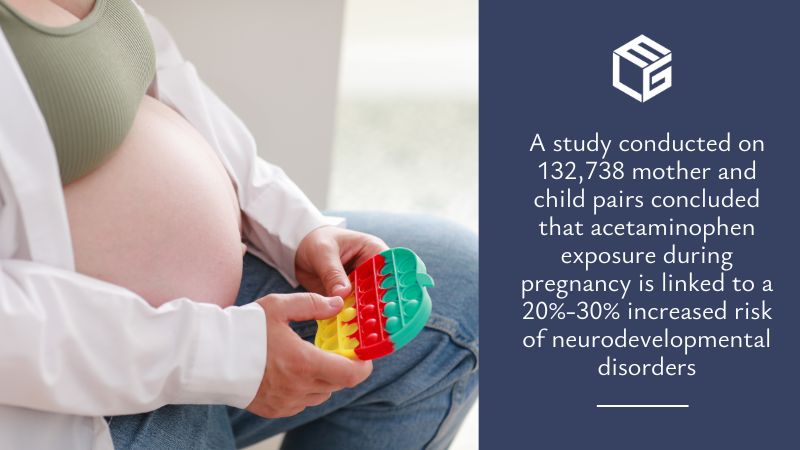Over 2,300,000 pregnant women in the United States took acetaminophen in 2021
The Centers for Disease Control and Prevention estimates that up to 65% of women take Tylenol while they are pregnant. In 2021, there were over 3.6 million births across the United States.
Currently, 1 in 36 children receive a diagnosis of autism by the age of 8. This means that over 82,000 children born in 2021 may come to struggle with autism. The following are some eye-opening facts about autism:
- many individuals with autism do not receive a correct diagnosis until adulthood, which only worsens their condition
The number of Tylenol lawsuits filed across the country has started to increase considerably over the last six months. In June 2022, there were enough cases to determine a group of plaintiffs to file a motion requesting the Judicial Panel on Multidistrict Litigation to consolidate all of these cases into a class action multidistrict litigation. The motion filed with the Judicial Panel on Multidistrict Litigation identified 20 Tylenol autism lawsuits pending in various federal districts. All of the cases involve nearly identical allegations and claims.
Eligibility criteria for women whose children developed autism spectrum disorder due to exposure to Tylenol in the womb
If you took Tylenol during your pregnancy and your child developed autism spectrum disorder (Asperger's syndrome, Kanner's syndrome, pervasive developmental disorder, and childhood disintegrative disorder, a.k.a. Heller's syndrome), you may be entitled to financial compensation from Johnson & Johnson.
However, it is important to know that even if you took acetaminophen sold under another brand name, you can still seek legal recourse, as the active ingredient in the medication is the same. The following are the two eligibility criteria if you want to file a Tylenol autism claim.
1. Evidence of having taken acetaminophen excessively during pregnancy
While you were pregnant, you must have used one or more branded forms of acetaminophen, including, but not limited to:
- Tylenol
- Excedrin
- Nyquil/Dayquil
- private-label acetaminophen sold by retailers, including Walgreens, CVS, and Walmart
Furthermore, to be eligible to file a claim, you must have consulted your doctor, nurse, or another medical professional about the use of acetaminophen while pregnant, and they must have approved of you taking the medication. Our attorneys will ask you to send in evidence of having used Tylenol or another drug with acetaminophen, such as prescriptions or receipts and your medical records.
2. Your child must have a diagnosis of autism spectrum disorder (Asperger's syndrome, Kanner's syndrome, pervasive developmental disorder, and childhood disintegrative disorder, a.k.a. Heller's syndrome)
The use of Tylenol or another drug with acetaminophen as the main ingredient during your pregnancy must have resulted in your child being diagnosed with autism spectrum disorder. Their diagnosis must be definite and accurate. You will have to send our attorneys the medical records of your child, which must clearly state they have autism spectrum disorder.
The following are the excluding factors for Tylenol autism claims, which means that if you meet just one of these criteria, you no longer qualify for compensation:
- your child was born before the 26th week of pregnancy
- your child is diagnosed with one or more of the following: Down syndrome, Fragile X syndrome, Tourette syndrome, tuberous sclerosis
- you were over 45 years of age when the child was born
- you or your spouse are diagnosed with autism
- you have already hired a lawyer to file a Tylenol autism claim
- your child is over 18 years of age
- your child’s birth occurred in Michigan
Please know that you will have a stronger claim if you can prove that you used high doses of Tylenol for a prolonged time during your pregnancy. Nevertheless, no matter how weak you believe your case is, we still advise you to get in touch with our attorneys, as you may actually be entitled to compensation anyway.
The link between in-utero acetaminophen exposure and neurodevelopmental disorders
According to a Consensus Statement published on September 23, 2021, human observational studies indicate that prenatal acetaminophen exposure might be associated with neurobehavioral abnormalities in both sexes.
Exposure to acetaminophen, the active ingredient in over 600 medications used to relieve pain and reduce fever, might increase the risk of adverse neurodevelopmental and behavioral outcomes, such as autism spectrum disorders, language delay in girls, and decreased IQ.
Important findings from this Consensus Statement are the following:
- prenatal exposure to acetaminophen might impact fetal development, which could increase the risks of neurodevelopmental, reproductive, and urogenital disorders
- in vivo, in vitro, and ex vivo studies found that acetaminophen disturbs hormone-dependent processes, which can lead to disrupted neurodevelopment in both sexes
- acetaminophen is an endocrine disruptor, and substances that disrupt the endocrine system are a cause for concern, as they can interfere with the activity of hormones that are essential for healthy neurological development
- the relationships between prenatal acetaminophen exposure and negative neurodevelopmental outcomes have been assessed in 29 observational studies in 14 cohorts consisting of more than 220,000 mother-child pairs from various parts of the world
- out of the 29 studies, 26 identified positive associations with acetaminophen exposure during pregnancy and neurodevelopmental outcomes such as behavioral abnormalities, but also autism spectrum disorders, language delays, decreased IQ, cerebral palsy, oppositional-defiant disorder, decreased executive function, and conduct disorders



